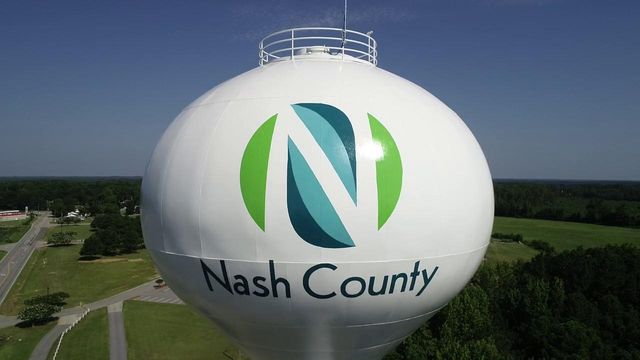From textiles to manufacturing: the industrial evolution of Nash County
From Pfizer to Cummins, advanced manufacturing plants have become one of the largest employers in Nash County and transformed what was once a textile and tobacco farming county into an industrialized hub.
Posted — UpdatedIn a rural pocket of North Carolina, nestled next to the Tar River and surrounded by farmland, Nash County was once powered by historic trades like textiles and tobacco farming.
Now, home to big names like Pfizer, Cummins, and Honeywell Aerospace, the county has evolved into a hub for the manufacturing industry.
While some of those older established industries continue to thrive in the area, advanced manufacturing plants have become the number-one employers in the county. For many companies, the convenient location Nash County offers is too good to pass up.
In addition to major roads and ports, the county is also less than an hour away from the Raleigh-Durham International Airport, and the CSX transportation rail and Carolina Coastal Railway provide businesses with rail service across the county.
For big-name companies like Cummins, that convenient location was a key selling point.
"The fact that we have I-95 and Highway 64 running straight through the county was really important. If you think about where we sit, we've got Virginia to the north, South Carolina below us, then access to the ocean at Beaufort just to the east," said John Judd, a plant manager at Cummins. "I think Nash County has done a really good job at providing easy access to facilities like Cummins and out of facilities like Cummins, and it's helped us develop a larger footprint today."
If there's anyone who can speak to the industrial evolution of Nash County, it's Judd. Originally from upstate New York, Judd moved to Nash County in 1985, after his father — who already worked for a Cummins plant — was transferred to the Rocky Mount branch. Judd himself followed in his parents' footsteps, starting a job on the assembly line at Cummins in 1988.
In the past 30 odd years, Judd has jumped from role to role at the plant, eventually landing on his current role of plant manager.
In his decades spent living and working in Nash County, Judd has had a front row seat to the manufacturing takeover — and that foresight has helped him and Cummins prepare the next generation.
"One of the things that we found out recently is, as we were recruiting people out of different states, it was hard to keep them here for two or three years. So several years ago, we made a decision that we were going to tap into the local schools and colleges, and we were going to put everything we had into preparing people within a hundred mile radius of this plant," said Judd. "These jobs are not factory jobs like they were 20 or 30 years ago, and one of the things we wanted to make sure of was that young students understood that they could stick around the county and still have a good career."
Since Cummins opened a plant in Nash County back in 1982, the company has made an intentional effort to ingrain itself with the community. In addition to providing local jobs, they've also made key connections with local suppliers and volunteer time with local programs. The company at-large also has a focus on sustainability, aiming to reduce greenhouse gases and emissions, use natural resources, and help the communities they're in address local environmental challenges.
As Cummins continues to grow, Judd estimates the company will add 400 to 700 new jobs over the next eight to 10 years. In addition to other plants in the area, like Pfizer, Honeywell and Draka, and a state-of-the-art advanced manufacturing program at Nash Community College, the county has become a hotspot for the industry.
For Judd, that's in large part thanks to the efforts of local leaders and the overall appeal of the area itself. He hopes that both of those factors, in combination with a quickly growing reputation, will allow the county to continue growing its manufacturing footprint, adding local jobs and an economic boost.
"Because our skill levels are improving, we're starting to draw people in from other locations, and we're also able to bring in more industry because of that," said Judd. "The county's done a really good job evolving with the times — better and more affordable housing, more restaurants, more hotels, more recreation — so the whole evolution over the last three or four decades has been good planning from our forefathers from years ago to where it is today."
Related Topics
• Credits
Copyright 2024 by Capitol Broadcasting Company. All rights reserved. This material may not be published, broadcast, rewritten or redistributed.






